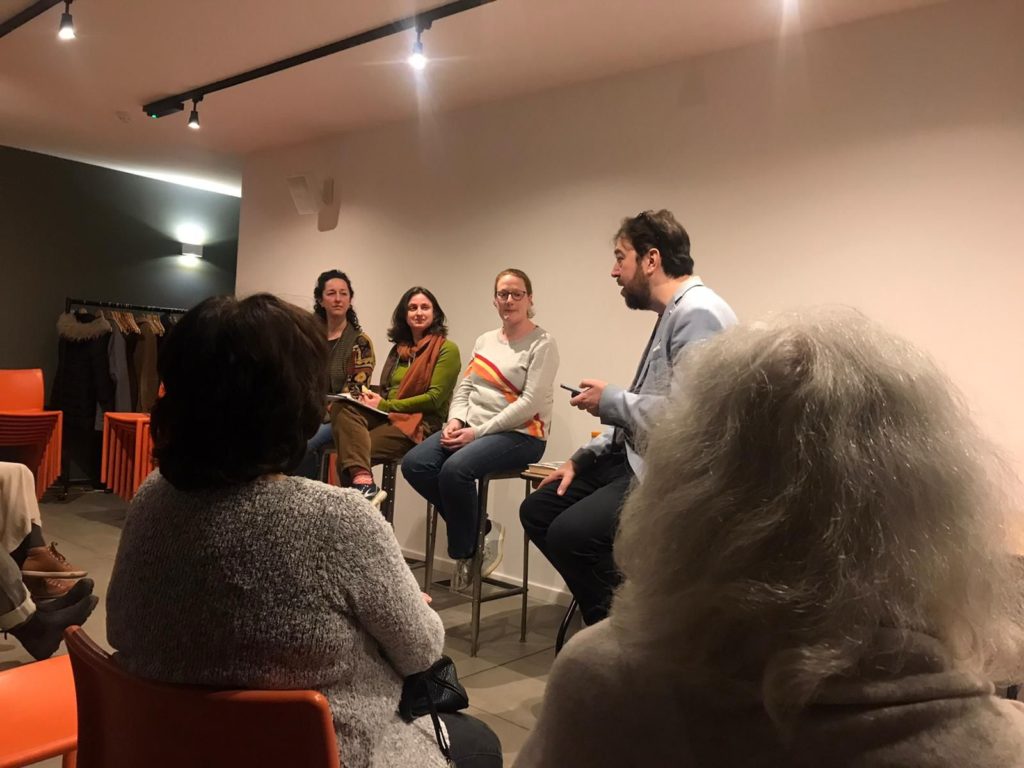Yesterday evening at JVS, we hosted a screening of Six Inches of Soil, followed by a Q&A session.
The panel discussion was more than just a talk—it felt like an inspiring call to action. The film, which delves into the shift towards regenerative farming in the UK, brought together a panel of experts who each had their own unique perspectives on food, farming, and sustainability.

Lucy Michaels, a seasoned food and farming campaigner, kicked things off by sharing her journey through the food system. With 25 years of experience, she has seen everything from the dark realities of intensive farming to the immense power supermarkets hold over farmers and labour rights. She explained how she became involved with the film, which focuses on three farmers in Cambridgeshire embracing regenerative agriculture. Her role was to help place their personal experiences within the broader, often broken, UK food system. The film has had a real impact, being screened in a wide variety of venues—from barns to investment houses and even synagogues. Lucy noted that audiences responded strongly, expressing a real interest in changing the way they buy food and supporting farmers who are making a difference.
Wendy Alcock, the founder of Incredible Edible Barnet, then shared her own story. After moving to Barnet, she transformed her own backyard into an edible garden, which soon became the inspiration for a much larger community initiative. Wendy spoke passionately about the need to reconnect people with where their food comes from, something she believes was lost during the Industrial Revolution when people moved away from the land and into cities. Her message was clear: community gardening isn’t just about food—it’s about connection, learning, and creating a sense of belonging.
Jess Robinson, a trustee of the Jewish farm Sadeh, brought a different perspective, linking the film’s themes to Jewish values. She spoke about the importance of reducing waste, minimising animal suffering, and allowing nature to regenerate. At Sadeh, these principles aren’t just discussed—they’re put into practice through sustainable farming, composting, and rewilding. Jess also highlighted the farm’s educational programmes, which help young adults understand the deeper relationship between food, spirituality, and community.
The discussion didn’t shy away from the challenges of transforming the food system. The panel acknowledged the power of corporate lobbying, the dominance of supermarkets, and the lack of incentives for big businesses to embrace sustainability. However, they also pointed to the power of grassroots movements, local food projects, and community engagement. The audience was encouraged to take action—whether that meant supporting small farmers, lobbying policymakers, or simply learning more about the food we eat.
By the end of the evening, it was clear that this was more than just a film—it was a catalyst for change. The conversation reinforced the idea that, while systemic change is needed, individuals and communities have a powerful role to play in creating a more sustainable and equitable food future.
Here are some small steps we can take:
- Back the climate and nature bill (it takes 30 seconds!) and also write you MP to ask them to back it.
- Grow your own veg
- Volunteer in your local community garden.
- When it comes to fruit and veg, support local farmers – e.g. farmers markets or sign up to a veg box scheme
- If you’d like to get involved in our JVS community garden, please email our community engagement manager Zoe Marks




















